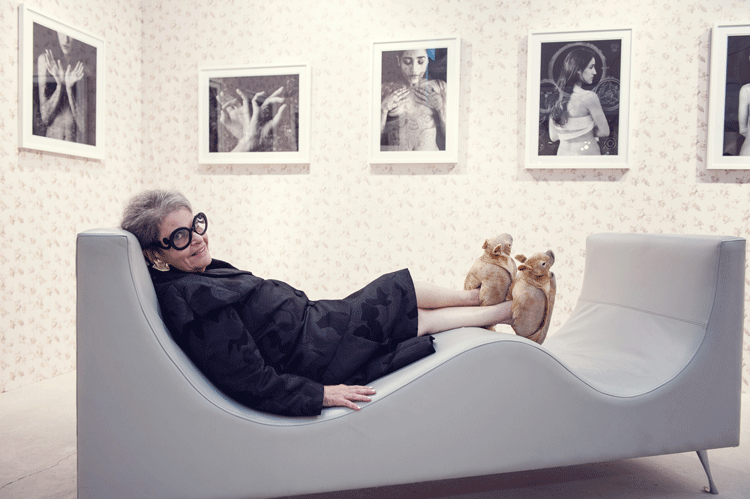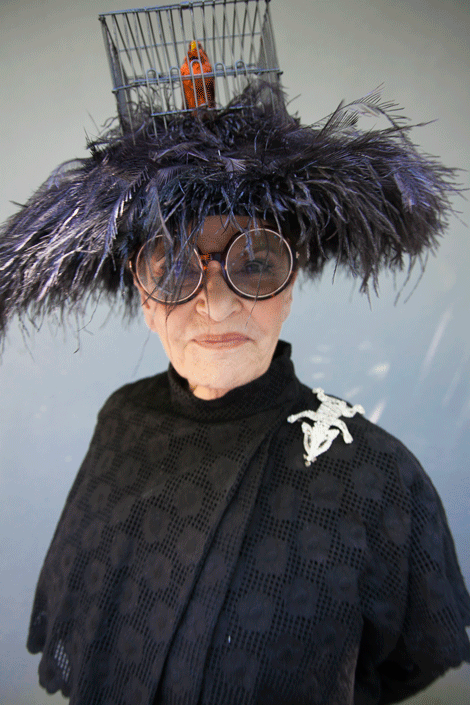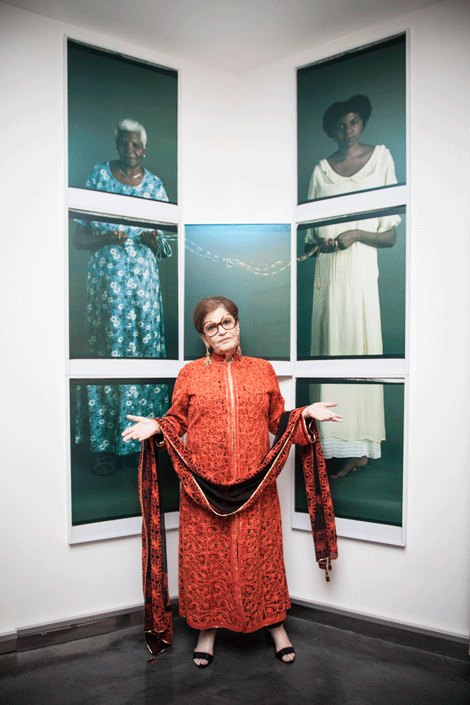Bernice is premiering at the Palm Springs Shortfest next week and the eponymous documentary celebrates the spunky tenured New York art dealer, Bernice Steinbaum as a long-time pioneer of female and minority artists.
I’m sitting beside Steinbaum now, taking in her “New York art lady” vibe and really loving those groovy round-rimmed Tom Ford sunglasses and that insane blouse she has on (what is that even made of?, I wonder). We’re waiting for our coffee at the Getty restaurant as we exchange pleasantries—she admired my skirt. I was unabashedly drawn to her warm and motherly charisma and suddenly the perplexity of the film started to reveal itself.
Running at 30 minutes long, the short film directed by Kristina Sorge traces Steinbaum’s earlier years as a flamboyant art dealer, focusing on the work and struggles of five artists, all of whom she supports financially. In an admiring portrait of Steinbaum’s humility, generosity and passion for the success of female artists and artists of color, the film draws upon interviews from her artists and a few colleagues, as well as Steinbaum herself. But ultimately, I was left with a curiosity for Steinbaum’s character that the film never quite addressed.
At lunch, she and I discussed her upbringing as the daughter of a Rabbi in Long Island, as she told me, “My background is Jewish and art was not a part of our culture. In fact, it was forbidden.” She received her doctorate in art history at Columbia and taught art history to college students for several years before the challenge of a gender-biased curriculum led her to the daring transition of opening her own gallery on Madison at 72nd in Manhattan. Steinbaum faced compound difficulties. She recalled, “the rent was more than the mortgage on my house and the first pieces that I hung were from my own personal collection. But if you build it, they will come…what did I know other than art? Nothing!”
At one time in New York, she was the only gallery to represent a Native American. She recounts this detail with astonishment and pride. Settling at a space in Soho a few years later, Steinbaum soon found herself in circles with Miriam Shapiro, Bella Abzug and Betty Friedan. It seems art became her refuge at an early age and her activist sensibility is still raging on.
Steinbaum eventually moved to Miami and for a time operated her gallery there. Although the space is now closed, she says, “I still sell art from my home. It’s a new kind of reality for me. I never realized how intimidating the white space could because that’s what I lived with. I think people admire my passion and think I’m not bullshitting because I live with this art next to my grandkid’s dirty shoes on the floor.”
Bernice wants us to love Steinbaum, though without telling us much about her. It reveals a deeply compassionate heart, a lovable personality, and a unique vitality in the garb of self-promotion. The film attempts to celebrate the career of Steinbaum but pays little regard to her journey. When Steinbaum lets me pick the dessert as we discuss the work of Kara Walker, Carrie Mae Weems, Vik Muiz, and Louise Bourgeois, I can finally understand how the Sorge got swept up in her charm. Unfortunately, that’s all the film accomplishes.
Bernice premiers at Palm Springs Shortfest on June 21; for more info: www.psfilmfest.org/
BERNICE
Directed By Kristina Sorge




